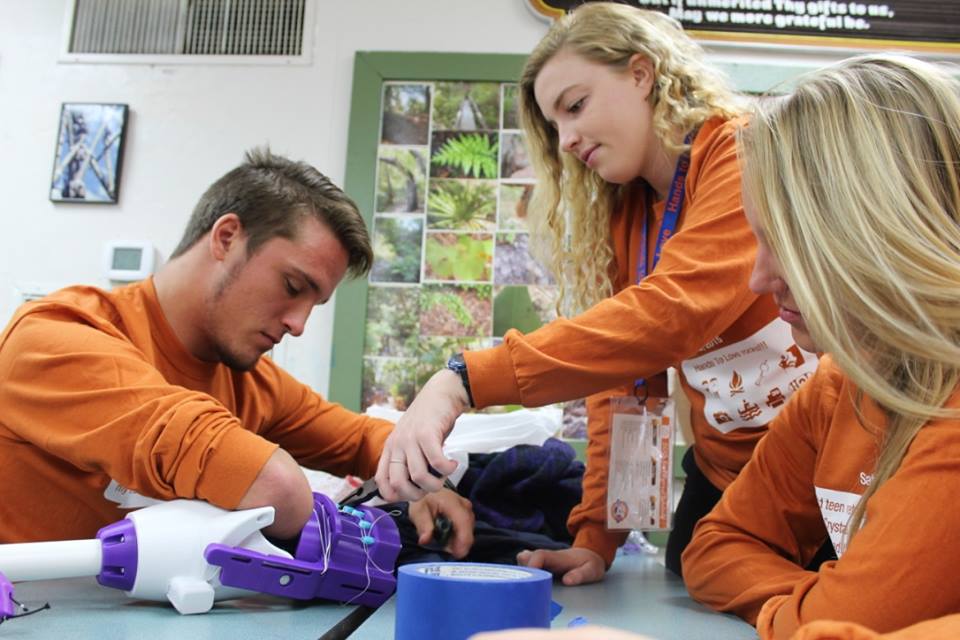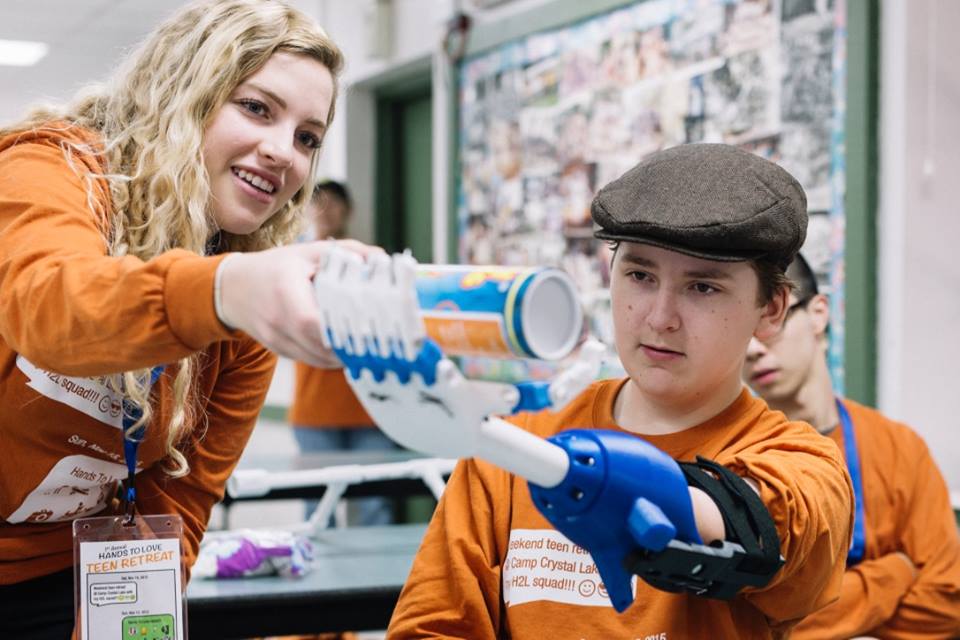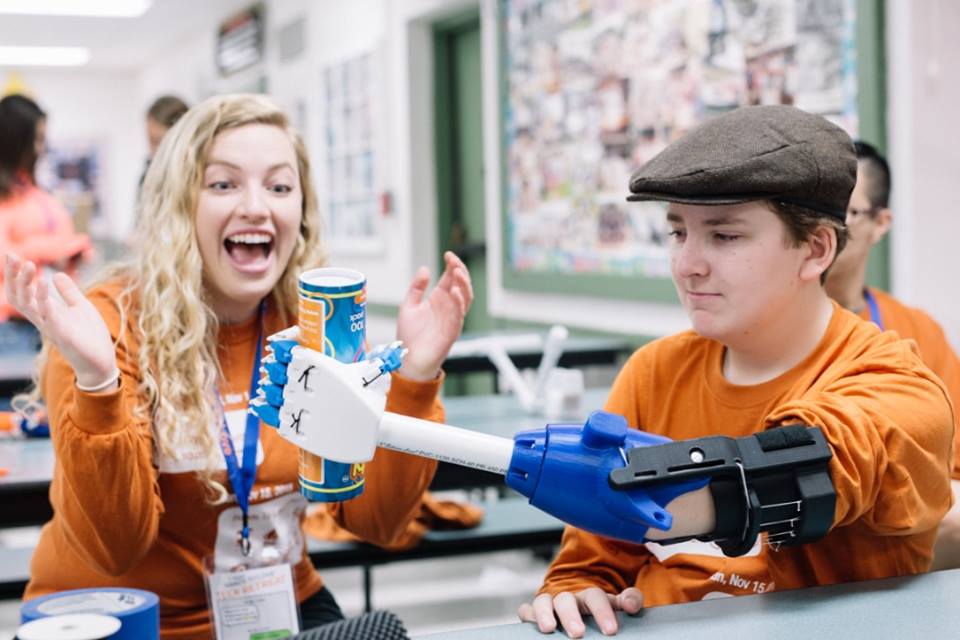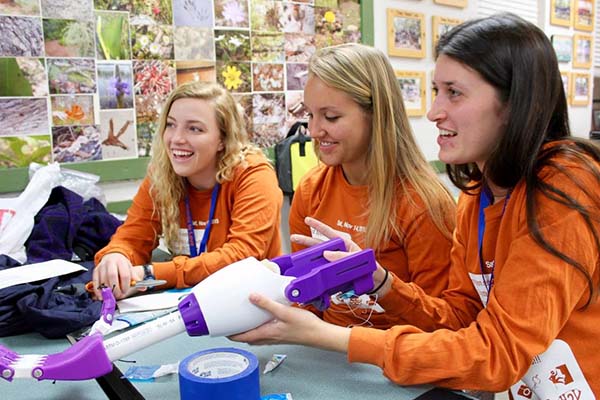A University of Florida organization, Generational Relief in Prosthetics (GRiP) designs and manufactures 3D printed assistive devices for children and adults with upper limb differences all throughout the nation. GRiP focuses on the empowerment of the recipients and STEM education in the community. Students come from every major, from medicine to art and learn to fabricate the prosthetics.
UF BME students, Samantha Haus and Ella Hoogenboezem, were immediately drawn to GRiP. Samantha Haus is the vice president of GRiP and a third-year BME student with a major focus on biomechanics. Samantha is a researcher with Dr. Kyle Allen’s lab and joined GRiP during the summer of 2015. “I am interested in working with prosthetics in the future,” said Samantha, “GRiP seemed like to the perfect way to see if I liked it and so far it has been extremely rewarding.”
In GRiP, the students are divided into teams working on specific devices personalized to the individual with an upper limb difference. They can personalize the device for both functionality, based on what type of residual limb they are designing for, as well as adding colors and themes such as Dr. Who. The students can additionally personalize devices for a more playful application such as a marshmallow shooter or a paddle holder for kayaking.
Ella Hoogenboezem, a third-year UF BME st udent, does research in Dr. Christine Schmidt’s lab working on the engineering of a novel hydrogel derived from decellularized porcine nucleus pulposus to combat degenerative disc disease. She joined GRiP in the fall of 2015. She said, “This past fall, we made and presented devices for teens with congenital limb defects. It was hands down the most rewarding experience I have had in my time at the University of Florida. In this upcoming semester, we hope to troubleshoot and continue refining the devices for the teens from the fall and work on more devices for campers in the future.”
udent, does research in Dr. Christine Schmidt’s lab working on the engineering of a novel hydrogel derived from decellularized porcine nucleus pulposus to combat degenerative disc disease. She joined GRiP in the fall of 2015. She said, “This past fall, we made and presented devices for teens with congenital limb defects. It was hands down the most rewarding experience I have had in my time at the University of Florida. In this upcoming semester, we hope to troubleshoot and continue refining the devices for the teens from the fall and work on more devices for campers in the future.”
“I am so proud of our BME students who continue to make such a difference in the community,” said Christine Schmidt, Pruitt Family Professor and Department Chair, “Samantha and Ella exemplify what ‘for the Gator Good’ means for our department.”
Rather than needing a costly prosthetic that children and teens will soon outgrow, GRiP’s 3D printed devices give young people with an upper limb difference the opportunity to try a prosthetic and see its potential uses without financial burden.


